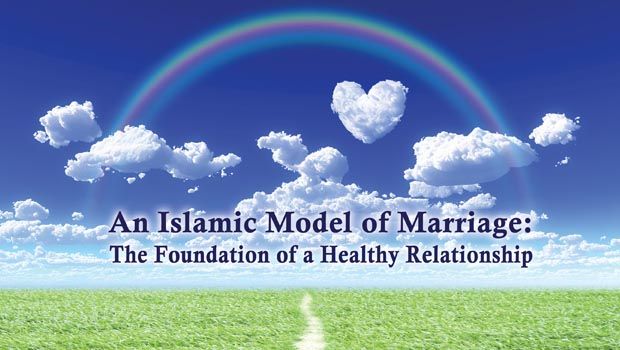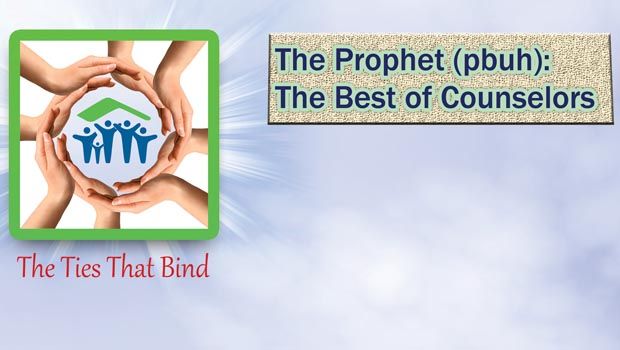Interview with Dr. Sarah Sayeed
Dr. Sarah Sayeed is a communication consultant and researcher based in NYC.
Q What are some topics that spouses should engage in to help understand one another better? What rules should they follow so that these conversations do not become antagonistic and create a divide between them?
A S. Sayeed: It’s important to remember that family communication sets the architecture within which family life operates—whenever we communicate, it is like we are laying bricks, building foundations, floors, and rooms. With attention, devotion, and care, our structure is less likely to crumble. Also, family communication is about much more than conversation—though conversations are critical to connection, there is a lot of communication that happens non-verbally. Spouses can create a feeling of togetherness by being involved in each other’s daily routines. The things we do on a daily basis offer opportunities to deepen our relationship with each other—things like making our salah together, preparing meals together, sharing housework, and sharing the responsibilities of taking care of children. There is certainly a precedent in the example of our Prophet (pbuh), who was involved and helped his wives with their daily routines. Families can and should prioritize making at least one prayer together like the saying goes: Families that pray together stay together.
Family meetings can be established each week as a regular forum to check in about sharing good news, positive affirmations, concerns for the week, or decisions that need to be made. Once this is established as a part of the regular routine, then there is a time to speak about what is good as well as what is bothering you. Spouses can make it a point to make sure there is discussion of both what is good as well as the challenges—this will allow them to feel a balance in the relationship.
People have different styles of communication, and what works for some will not work for others. I think three principles are important though: listening with an open heart, turn-taking, and helping each other think clearly by asking open-ended questions.
Listening means allowing each other to speak honestly but not to take each other’s feelings personally. Like hunger—if your child or your spouse is hungry, you don’t take it personally—you realize that they have an inner setup that requires food, and you help them to meet that need by preparing something for them to eat. It is like that for emotional needs as well—we all have an inner need for connection, love, and closeness. We need to treat these needs as valid, and incorporating loving messages into daily life can be very helpful, whether that is a smile, a hug, kiss, a loving note, or leaving special surprises for each other.
Sometimes, spouses look to each other to meet needs that they can fulfill themselves. For instance, if one person needs to feel more connected, they can fulfill that need by being connective and close to others. When we give love to others, we meet the needs for closeness, and ultimately, spouses will place less demands on our marriage.
Q What are some of the reasons that spouses who have been married a long time begin to lose interest or harmony with one another?
A S. Sayeed: It is easy for marriage to become dull; anything that is part of our daily routine risks that, especially if we don’t pay attention to it. That’s why the Imam tells us to pray each prayer as if it is our last prayer. We have to bring consciousness and loving awareness of God into our daily prayers so they retain meaning for us; this also applies to marriage, which is like a flowering plant—without conscious nurturing and loving care-taking, it is easy for the connections in marriage to wither and, ultimately, the root will stop growing deeper.
Reminding ourselves about our death helps keep us focused on the fact that we have a short time on earth and a short time with all of the people in our lives. To keep things fresh, spouses can remember that each day is a new day, like the ayah of Surah Rahman tells us: “On Him depend all creatures in the heavens and on earth; [and] every day He manifests Himself in yet another [wondrous] way” (Al-Quran, Surah Rahman,29).
Since Allah creates each day as a new day, we can train ourselves to be observant and look for the new and wondrous in each other. One really important cornerstone of marriage and any relationship is a sense of gratitude to the Creator for the bond that we have with our family members, friends, and colleagues: it is Allah who brings our hearts together. The Muslim’s view of life must be directed towards the idea of “Alhamdulillah ‘ala kulli haal”- Praise be to Allah for all conditions. If things are hard in marriage, it is because there is a test for us in it, and we have to seek Allah’s help and ask Him to guide us towards a good solution that will benefit both parties.
It’s important to note also that marriages end sometimes even when people are trying really hard. While divorce is the last option, Allah in His Mercy did grant us this provision and ease and gave us the guidelines to make sure that divorce is equitable and preserves the rights of both parties. There should be no blame placed on either party because it does not help. Because Allah allowed Muslims to avail of divorce, the community needs to develop norms, education, structures and services that help Muslims get through this process in a way that retains mutual dignity and emotional wholeness so that, hopefully, if they choose to, people can begin another relationship without the stigma of divorce.






